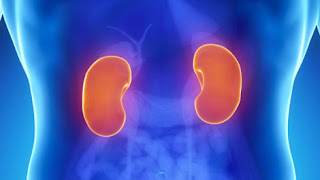Potassium is one of the essential elements for human beings. It keeps balance of water in the body and makes heartbeat regular combined with sodium. In general, there should be 2000mg/kg potassium in the body for human beings. Among them, 98% of potassium exists inside the cells, which are distributed in muscles, liver, marrow and red blood cells.
The main function of potassium is to keep nerves and muscles working normally. Generally speaking, it is appropriate for adults to take in 2g~2.5g potassium every day. For example, 100g nori contains 1.64g potassium.Herbal Medicine and Kidney Disease Micro-Chinese Medicine Osmotherapy
General weakness, fatigue, decreased heartbeat and dizziness will occur if the body lacks potassium. It will deteriorate into respiratory muscle paralysis, which is fatal if the body lacks potassium too much. In addition, low-potassium makes gastrointestinal motility slow down, which leads to enteroplegia and aggravate anorexia. Then nausea, vomit and abdominal distention appear.
Clinical medical materials have proven that people who get heatstroke all have potassium reduction. All kinds of juice, especially orange juice, are rich in potassium, which can supplement water and energy. So people can drink orange juice instead of water in summer.Treatment Options for Stage 4 Chronic Kidney Disease (CKD) Is Stage 4 CKD (Chronic Kidney Disease) Curable Medicated Bath and Kidney Disease
For patients with Chronic Kidney Disease, potassium is not helpful, and even endangers their lives. Potassium in blood is excreted though kidneys. When Chronic Kidney Disease occurs, the ability of excreting potassium will reduce, which is easy to cause Hyperkalemia. If the condition is serious, it will lead to sudden death caused by hear shrinking excessively.Hot Compress Therapy for Kidney Disease Acupuncture for Kidney Disease High Blood Pressure and Kidney Disease
So patients with Chronic Kidney Disease should be cautious of potassium.
We will list some fruits and foods contain potassium below.
Fruits rich in potassium: kiwi fruit, bananas, strawberries, citrus, grapes, shaddock, and watermelons and so on.
Food rich in potassium: spinaches, Chinese yam, green soy beans, edible amaranth, leeks, soya beans, mung beans, broad beans, kelps, nori, yellow croakers, chicken, milk, maize and so on.
All in all, people who lack potassium should supplement it in time. Eat more food mentioned above, and ensure that the intake of potassium is in the normal range. However, for patients with Chronic Kidney Disease, they should pay attention to the intake of potassium.
